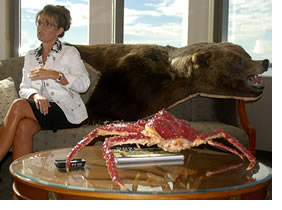A cool cucumber speaks about sex partners
Friday, October 24th, 2008 by Susan PietrzykRecently I heard a polished and thoughtful presentation about concurrent heterosexual sexual partnerships given by a PSI research officer. From what I understood, PSI completed a series of interviews and focus group discussions to delve into findings from a 2006 survey indicating that in Zimbabwe 33% of men and 29% of women have more than one regular sexual partner . A few things during the presentation commanded my attention.
First, the title was precise. Particularly inclusion of heterosexual in the title seemed precision that’s rare in Zimbabwe, yet important. I’m used to this specificity; I expect researchers to state what type of relationships they are referencing – same sex or opposite sex. I expect this more in terms of clarity and less in terms of an advocacy statement. But in Zimbabwe, it’s a bit more of a statement. Inclusion of heterosexual in a title is an important (tacit) acknowledgement that same sex sexual relationships exist in Zimbabwe.
Second, the attention to detail. And on the topic of sex, no less! One problem with the phrase Concurrent Sexual Partnerships (CSPs) is that it’s evasive, allows dancing around the heart of the matter. There exists vagueness, as if additional sexual partners are out there in the ether. Cast as misbehaving others, temptresses and tempters seen as not real. Truth be told, there’s no ether. Men and women have sex outside marriage with real people (33% of the men do it and 29% of the women). PSI’s research explores this ether. Who exactly do husbands and wives have sex with? What do husbands and wives say about these relationships? Such an exploration is not just about withholding moral judgment. It’s about looking at the detail and PSI’s research cleverly does this. The research examines Male-Led CSPs, such as: 1) wife + commercial sex worker; 2) wife + small house; 3) wife + widowed/divorced; and 4) wife + young girl. As well as Female-Led CSPs, such as: 1) husband + garden boy; 2) husband + boyfriend; and 3) husband + sugar daddy.
As the presenter elaborated on Male-Led CSPs, the (female) panelists listened. As did the audience (nearly all women). When the (male) presenter spoke about Female-Led CSPs things changed. There was scepticism and ruffled feathers in the air. As if there was a giant roar from the largely female crowd: No! You must know that it’s only men who have sex outside marriage. But no worries. Mr. Wellington Mushayi was a cool cucumber. Let his data speak. These are the people men have sex with outside marriage (33% of all men do it). These are the people women have sex with outside marriage (29% of all women do it). No moral judgment, only facts and details because this data importantly looks equally at why men and women make the choices they do. Understanding these choices is a crucial element in, among other things, working to reduce sexually-transmitted infections and improving sexual health.
Finally, a comment from a man in the audience caught my attention. Because it was one of the most ridiculous comments I’ve heard. He said: Men’s behavior is never abnormal except in the presence of women. What the H-E-double toothpicks is that about!? As if it’s the fault of women, who/what men choose to pursue and do. Ok maybe I could go with his point in the sense that men face pressure to spread their semen and sex has transactional aspects. But I don’t think a meaningful path to lessen these dynamics is about blame, particularly blame which polarizes. Seems to me it’s a self-reflective path. A path to instill confidence to understand and think responsibly about one sexual relationship. And/or multiple sexual relationships. Nothing wrong with having them, just make sure it’s mutual, that the playing field is level, and it’s what you want.
It was an excellent presentation. The research methodology aptly treats men and women equally. And the resulting data will be an important part of developing honest understandings concerning sexual relationships in Zimbabwe. What dynamics surround sex. What people feel and experience. And what this all means.











